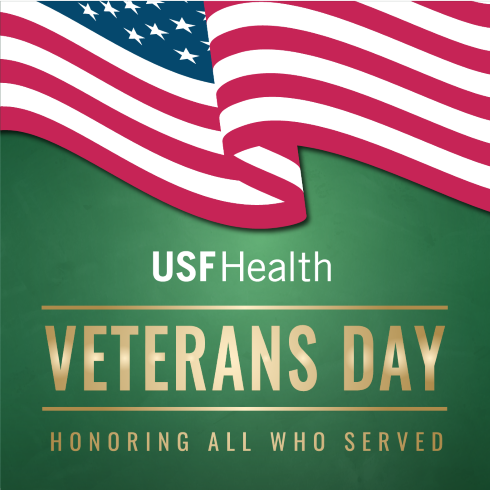We have known that soldiers are psychologically damaged by war for millennia. The historian Herodotus is often credited with the first description of a soldier with such injuries after the Battle of Marathon in 440 B.C., although other accounts date to Mesopotamia in 1,300 B.C.
Over the centuries and through different American wars, similar injuries received new names. It was known as “soldier’s heart” in the Civil War; “shell shock” in World War I; “combat fatigue” in World War II, and “stress response syndrome” in the Vietnam War. Not until 1980 did we officially recognize what we now call post-traumatic stress disorder (PTSD). We still have much to learn about PTSD, as well as how soldiers are affected by traumatic brain injuries (TBIs) and how the two conditions are linked.
New solutions are urgently needed. More than 67,000 veterans in Florida suffer from traumatic brain injuries and/or PTSD, and the lack of effective care costs $3.8 billion a year. Nationwide, there are more than 877,000 service members with untreated brain injuries.

As we honor our soldiers and veterans this Veterans Day, I am proud to say that USF Health is embarking on a monumental effort to better understand – and potentially treat – TBIs and PTSDs in our veterans. Thanks to a $28 million grant from the Florida legislature, we are seeking to determine whether repeated sessions using hyperbaric oxygen therapy (HBOT) may help soldiers’ brains heal.
Anecdotal reports suggest that HBOT may help, but there is no definitive evidence whether it works – or why. It’s possible that delivering pure oxygen under high pressure helps increase blood flow in the brain, decreases inflammation and improves network connections, says Dr. Harry van Loveren, our chair of Neurosurgery and Brain Repair and the principal investigator for the study.
The study will measure the physiological effects of HBOT using a variety of measures, from EEGs to functional MRIs to map brain connectivity. In addition, the study will assess changes in the gut microbiome, in blood biomarkers and in sleep patterns. Thus, even if HBOT turns out not to have a positive neurological impact, we will still gain valuable knowledge on the physiology of brain injuries, novel biomarkers of PTSD and TBI and their link to the microbiome.
How else can we help our veterans? One way is to do a better job talking about PTSD, says Dr. Ryan Wagoner, our chair of Psychiatry and Behavioral Neurosciences. PTSD still carries a stigma, and we need to recognize that PTSD is unpredictable, and is caused by a complex mix of genetics, lived experiences, individual brain chemistry and repeated exposures to traumatic events. There’s no way to tell how those elements will interact or at what point a person may develop disabling symptoms of PTSD.
But both Drs. Wagoner and van Loveren share my optimism that better days are ahead for those coping with brain injuries, as we are rapidly learning more about these complex conditions and potential new treatment strategies. Our university is deeply committed to this avenue of research, and, as Dr. van Loveren likes to point out, much of the HBOT trial is being conducted by USF Health team members who are themselves veterans – a study “by veterans, for veterans.” We are deeply grateful for their service, and we are working to serve them in return.
Meanwhile, if you are inspired by our veterans’ willingness to serve, please remember that there are many ways you can serve as well. Volunteer with our Tampa Bay Street Medicine group and USF Health BRIDGE Clinic or at the Judeo-Christian Health Clinic, Metropolitan Ministries, or our local public schools. Especially in the wake of this year’s hurricanes, our communities need our help now more than ever.
Whatever path you choose, I thank you for your own acts of service. Volunteering in our community is a meaningful way to honor our veterans, and to live out our commitments toward making life better for everyone.